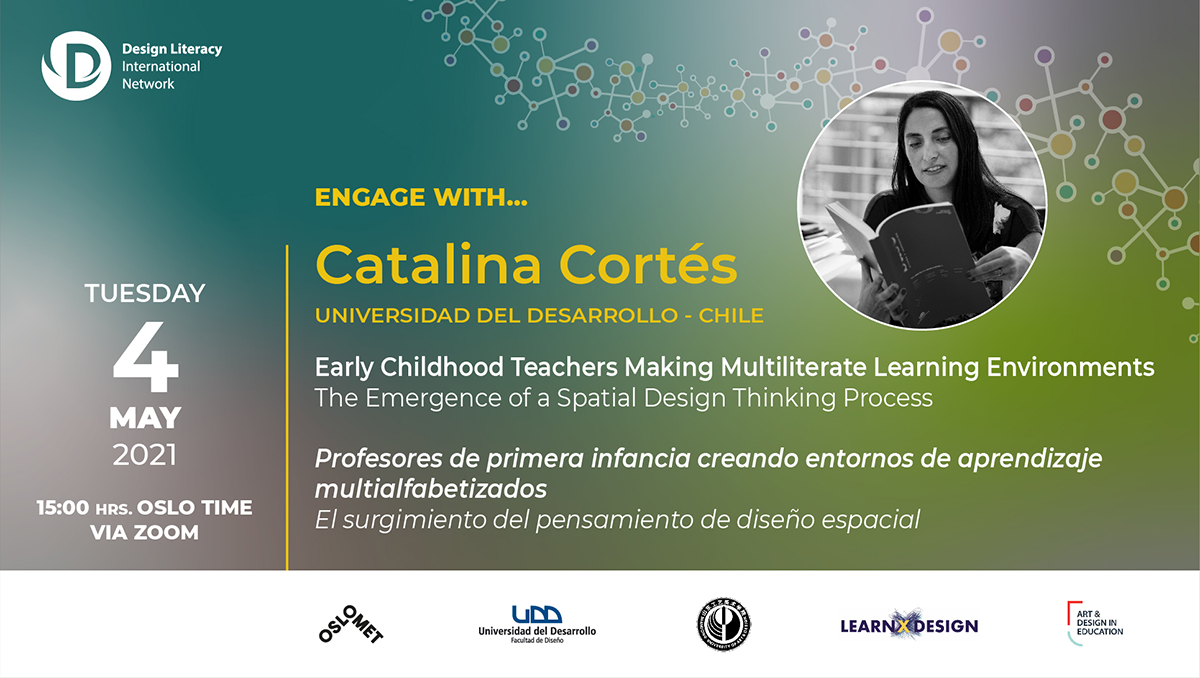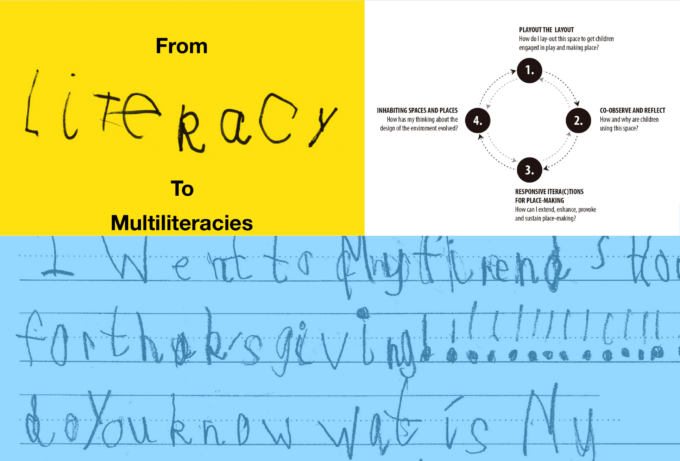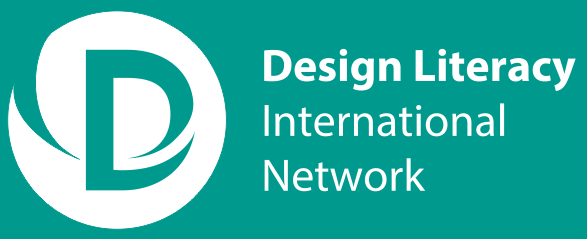
Catalina Cortés | Early childhood teachers making multiliterate learning environments
Catalina Cortés discussed a co-authored research article titled Early childhood teachers making multiliterate learning environments: The Emergence of a Spatial Design Thinking Process published in the 2020 June’s Thinking Skills and Creativity Journal. doi:10.1016/j.tsc.2020.100655

The journal editor has kindly agreed to make Catalina’s article available to the Design Literacy International Network participants. Prior to the event the journal article will be emailed to all participants who have booked a place to attend the talk.
Catalina’s paper aligns with the critical debate about multiliteracies’ teaching in early childhood education. The paper is contributing to the debate of rethinking ‘multiliteracies pedagogy’ and ‘multiliterate learning environments’ in relation to providing innovative and meaningful educational spaces for young children. The paper argues that aiming to enable multiliterate learning environments offers teachers and researchers the possibility to reconceptualize early childhood classrooms as sites of ‘thinking’ revolution and unique spaces for theorizing new contours of literacy pedagogy.
Catalina discussed how the ethnographic study explored and elicited early childhood teachers’ thinking and making multiliterate learning environments, using a single-case study emplaced in a university’s laboratory preschool. She will elaborate on the findings which suggests that teachers’ design thinking process is culturally situated and ‘child interest-driven’, thus, enabling some child agency in spatial meaning-making as co-authors of the multiliterate learning environments they inhabit. The suggestion is that the design thinking process unfolds through an ongoing iterative and collaborative four-phased-cycle. Teachers ideate and reflect on multiliteracies and place-making decisions that materialize learning environments based on the world of children. While making multiliterate environments through this spatial design thinking process, teachers are empowered as designers and as makers of a ‘third teacher,’ where a wide-ranging diversity of people, texts, practices, meanings, and cultural contexts intersect to build communication.
Event recording
The talk is part of the Engage with Ideas monthly series, which explore the relationship between design, education, and society. Recordings from the past Engage with Ideas sessions are available here.
Download Catalina Cortés Slides (PDF 11MB)
 Catalina Cortés is an academic and researcher at the Design School of Universidad del Desarrollo (UDD) in Chile (University for Development) and has been teaching design for 20 years. She is certified by The Index Project (https://theindexproject.org/) as an honourable member of the Design to Improve Life Education Academy and works as a Facilitator teaching Index’s Compass Design Methodology. She has been awarded national and international funds focused on: strengthening the knowledge about design literacies for the general public; studying emergent spatial design thinking processes developed by teachers to create multiliterate learning environments; Design Thinking as an approach to solve problems of practice by Chilean school educators, and the development of TAMI, a tangible interface to learn abstract mathematical concepts.
Catalina Cortés is an academic and researcher at the Design School of Universidad del Desarrollo (UDD) in Chile (University for Development) and has been teaching design for 20 years. She is certified by The Index Project (https://theindexproject.org/) as an honourable member of the Design to Improve Life Education Academy and works as a Facilitator teaching Index’s Compass Design Methodology. She has been awarded national and international funds focused on: strengthening the knowledge about design literacies for the general public; studying emergent spatial design thinking processes developed by teachers to create multiliterate learning environments; Design Thinking as an approach to solve problems of practice by Chilean school educators, and the development of TAMI, a tangible interface to learn abstract mathematical concepts.
Catalina won the Chile Design Prize 2005 in the categories of publications and print; Chile Design Prize 2019 in the research category with TAMI https://tami.udd.cl/tami/; and Best Concept in Ixda Interaction awards 2020 https://awards.ixda.org/blog/2020/announcing-our-2020-winners/
The event was free of charge.
If you would find more information about the talk you can contact us by using this email contact@designliteracy.net with the following information:
email subject line: Engage with Catalina Cortés
your name: Given LastName
your location: City, Country
your affiliation:
Bookings
Bookings are closed for this event.
